Does the contraceptive pill cause depression?
- Published
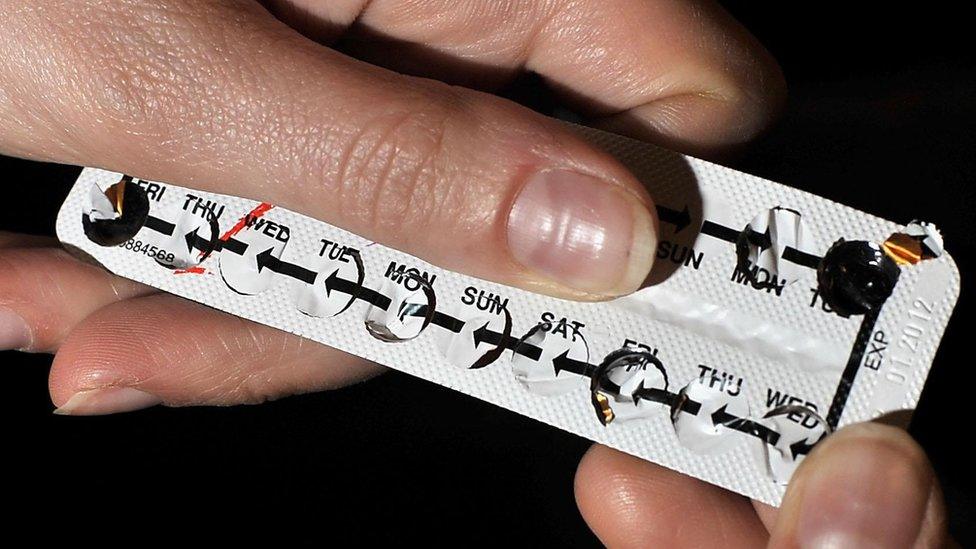
The study found a higher incidence of antidepressant use among women on the pill
"At last!" "Elated." "Really? This is only now becoming common knowledge?"
Sighs of relief and growls of frustration were among the online reactions from around the world to the Danish study, published last week, which found that women on the contraceptive pill were more likely to be diagnosed with depression.
Researchers at the University of Copenhagen studied the health records, external of more than a million Danish women aged between 15 and 34, in one of the largest studies to date.
They found that those on the combined pill - which contains artificial versions of the hormones oestrogen and progesterone - were 23% more likely to be prescribed an antidepressant than those not on hormonal contraception.
For those on the progestin-only pill, the figure rose to 34%. It increased even further, to 80% more likely, for girls aged between 15 and 19 on the combined pill.
'Suicidal tendencies'
As news outlets reported the findings, Nikki Cosier, who commented on the Australian Broadcasting Corporation's article, external, was one of many to share their own experiences: "I lost more than 10 years of my life to suicidal depression while I was on hormonal birth control... my body displays a clear link between the two."
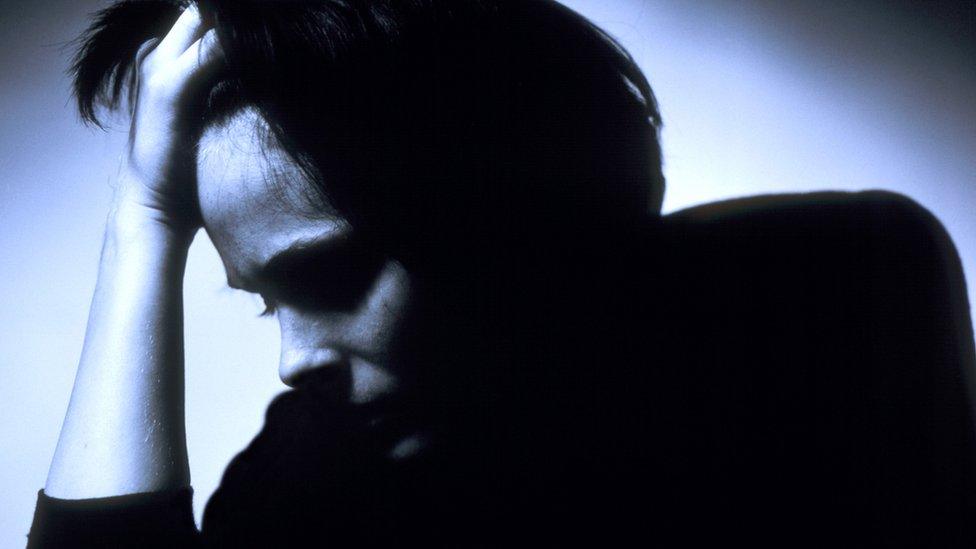
Some women say the pill has caused them to suffer serious depression
And Guardian reader ChristinAmsterdam, external realised it might have affected her: "Wow. Just wow. Five years ago I had a serious breakdown. It coincided with some major life events as well as being put on a new, healthier contraceptive pill... I asked my GP if perhaps my change of contraception might have something to do with my very low moods. But was told that there was absolutely no link whatsoever between depression and contraceptives... I went on to battle serious depression and suicidal tendencies for 5 years... Then around 3 months ago, while on a waiting list for new therapy, things just started to turn around. Without explanation, I just felt better in myself. Only now does it occur to me that the change coincided with me stopping the contraceptive pill."
But there were those who also reported opposite effects, such as Sarah Gould, also on the ABC story: "I went on the pill to help my depression and it worked!"
Professor Øjvind Lidegaard, one of the researchers, told the BBC that there was already some evidence of the effect on mood. But, he said, the most significant and surprising finding was the extent to which the incidence of depression increased among young women with no previous mental health problems who began using the combined pill - from about 1% of women to 1.8% of women.
"If it is increasing by 80% it is not a trivial finding, it's something women should be fully informed about," he says.
'Pillsplaining'
But scientists, like Dr Channa Jayasena from Imperial College London, were quick to point out that the "study does not prove [and does not claim] that the pill plays any role in the development of depression", external.
Users too made this point, like the freelance writer Laura Sneddon: "As someone who finds their depression worsened by hormonal contraception... correlation is not causation".
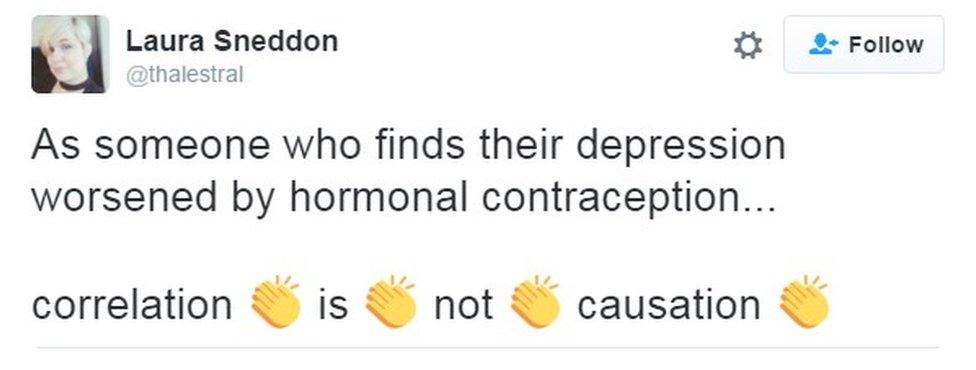
Others, like Dr Diana Mansour, external of Newcastle University, pointed out there are many other possible causal factors - including emotional and relationship problems: 'With having a million women, there are 101 things that are variable here."
But Prof Lidegaard believes there is a causal influence - even though the research proves only a correlation. "We cannot see any other explanation," he says.
Several experts said women should not be alarmed and should continue taking the pill as normal - though this was dismissed as "pillsplaining" by the author Holly Grigg-Spall, external.
But two points at least are uncontroversial: anyone concerned about symptoms of depression should seek help - and more research would be very welcome.
- Published29 September 2016
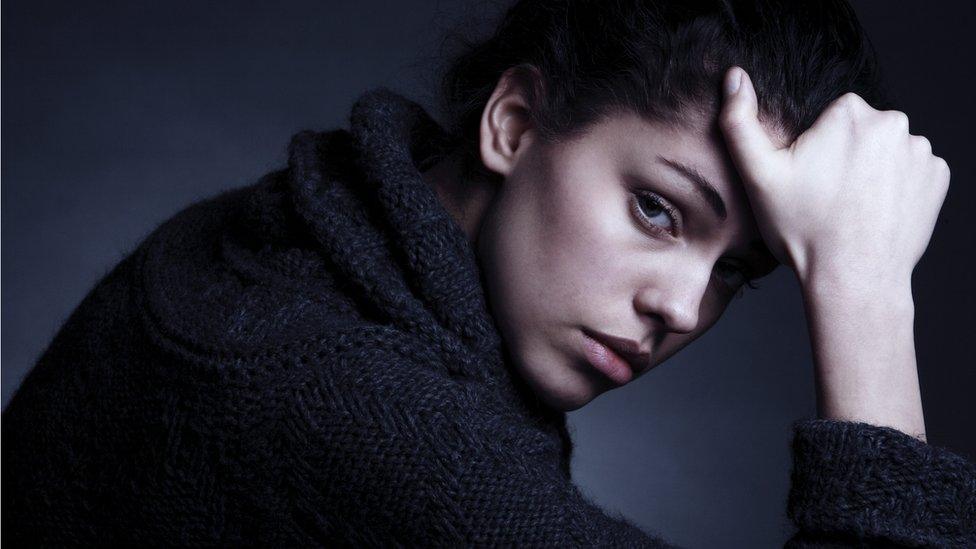
- Published15 September 2016
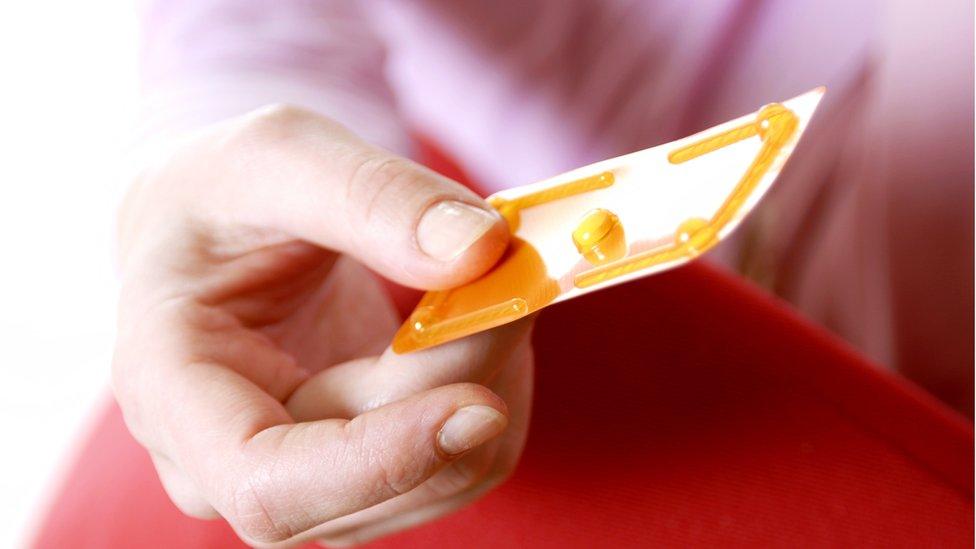
- Published19 January 2016
